I know I’ve been promising to update you all on my 10th novel, The Marionette, and well, I guess I’m finally getting around to it. Sorry it hasn’t happened sooner. I’m not going to share spoilers here. I’m just going to set up the story. Everything you’ll read here you’ll learn in the early pages of the novel. So without giving too much away, here we go…
A little bit about the story
The Marionette is the story of failed intelligence officer turned spectacularly successful thriller writer, James Norval, and how he finally gets in the game. And when I say “game,” I mean the murky world of intelligence agencies and clandestine operations that he almost joined in his twenties… but he didn’t quite make it.
James is now in his fifties and has established himself as one of the world’s most popular thriller writers. But writing was his fallback career, his Plan B, when 30 years earlier he washed out of the CSIS recruitment process at the very last stage. (For those not living in Canada, CSIS is the Canadian Security Intelligence Service—you know, Canada’s CIA.) James never made it across the CSIS finish line and this disappointment has gnawed at him ever since, leaving him with a somewhat jaded and cynical outlook. Sure he became wildly successful, famous among thriller aficionados, and rich from books, movies, and streaming series, yet he still feels that living vicariously through the exploits of his recurring character, Hunter Chase, is not as fulfilling as actually living the life of an intelligence agent himself, as he’d always wanted.
As a novelist, James is known for his commitment to extensive, detailed research so that his books have the ring of truth from start to finish. It’s his trademark. He gets everything right. But that often means research trips to some unstable countries and taking risks all in the name of accuracy when he starts writing the manuscript.
The Marionette opens in an interrogation cell in Dushanbe, Tajikistan’s capital city. James was detained for taking photos of the Russian Military Base nearby. It’s safe to say that his captors aren’t convinced of his claim that he was merely researching his next novel, though that is the absolute truth. Without going into too much detail, he has not been harmed during the first two days of increasingly aggressive questioning, but on Day 3, it looks like his interrogation might be taking a turn for the unpleasant. Luckily, James is saved by a Canadian diplomat from neighbouring Kazakhstan—Canada has no diplomatic personnel in Tajikistan—who arrives just in the nick of time and hustles him out of the Tajik prison. James is driven right onto the tarmac of the Dushanbe International Airport where he boards the Canadian government jet that idles just off the runway.
Waiting to greet James is none other than the Canadian Minister for Public Safety, the Honourable Angus McLintock. (Now, just to be clear, this is not an Angus novel, but he does play an important role and makes a few key cameo appearances. This is James Norval’s story.) Angus asks for James’s help in Mali, the very unstable West African country that has just suffered yet another coup. Tardif Resources is a Canadian company operating a gold mine in Mali’s Kenieba region and employing some 250 local workers. But in the wake of the coup, the new regime has nationalized the gold mining sector. The 15 Canadian mining execs on-site are essentially being held under house arrest so they can keep operating the mine to line the pockets of the architects of the recent coup. Corruption in Mali is pervasive and permeates virtually all of the nation’s institutions. So CSIS has been charged with somehow safely extricating the Canadians from a very dangerous country. I won’t explain why, but there is a powerful reason for Angus to be asking James—a civilian—for his assistance in this endeavour.
Skipping forward, James eventually finds himself in the Presidential Palace in Bamako, Mali’s capital city along with a young but experienced, by-the-book, CSIS operative named Lauren “Coop” Cooper. Her cover is as James’s research assistant. While Coop is actually in charge of the intelligence operation, she is merely James’s bag-carrier in the eyes of their Malian hosts. There is tension between the two of them largely because of James’s fictional thriller writer’s view of clandestine operations versus the less-exciting reality of Coop’s field experience. This is one source of humour in the story.
Okay, I think I’d better leave it there for the time being. I don’t want to give away much more of the story than this. So in the end, it’s an escape story with lots of twists and turns and I hope, a few laughs along the way.
What’s behind the story?
Growing up, I always enjoyed reading thrillers though I don’t read them all that often anymore. So the idea of trying to write a comic thriller has been in my head for years. I began to explore thriller elements in my writing in Albatross (in particular, the roof top scene in Dubai). I went further with Operation Angus, which had many of the ingredients you often find in thrillers including international intrigue, an assassination plot, geopolitics, danger, etc. So I’m taking another shot at a comic thriller in The Marionette. One might argue that I should “stick to my knitting” or “stay in my lane” and keep writing straight-up comic novels. Probably wise counsel. But I always like to challenge myself at least little with each new novel. So here we are.

I have often thought a thriller writer is the perfect cover for an intelligence operative because they are free to travel under the guise of researching their next novel. In a way, they are “hiding in plain sight.” I even considered this as a title, but then discovered there are scads of novels already on the market called In Plain Sight. So I opted for The Marionette, which hints at a slightly more complicated story than you might think. As in many thrillers, all is not necessarily as it seems.
A brief digression about CSIS
To digress for a moment, you may be wondering whether Canada’s intelligence agency, CSIS, even undertakes clandestine operations in other countries? Well, we don’t know a lot about CSIS operations beyond our borders, and that makes sense given the nature of intelligence operations. (To state the obvious, if everyone knew about clandestine operations they would be neither “clandestine,” nor effective.)
But we do know that CSIS does have a presence internationally with “foreign stations in key locations abroad.” And we know that a federal judge in 2021 granted CSIS “warrants to operate abroad, even if it means breaking another country’s laws,” where there are deemed to be threats to Canada’s security.
So, where am I in the writing process?
After many months of thought, notes, and mapping, the story is already fully-cooked in my mind—I’m hoping that doesn’t mean half-baked, but we’ll see. I have a good sense of the principal characters and their evolution over the course of the story.
Just in case it’s of interest—I’m fascinated by how other writers approach the task of writing novels—here’s a current look at the computer file on my MacBook Pro for The Marionette. There’ll be many more folders and files by the time the novel hits bookstores in the late-summer/early-fall of 2025, including a folder with the name “Manuscript.”
I’m now in the middle of developing my scene-by-scene bullet point outline of the novel. If my earlier novels are any indication, this outline should run between 80 and 90 pages when it’s finished, I hope by the end of March. Then, guided by that detailed outline, I’ll write the manuscript in April, May, and perhaps part of June. After spending the summer editing and polishing, over and over again, I’ll turn the completed manuscript over to my editor at McClelland & Stewart (Penguin Random House) by the end of August.
Just to complete the novel’s publishing journey, there will be at least two more edits with my editor over the fall and into the early part of 2025. Then it’s on to the design of the cover and the book’s interior, the drafting of cover copy, and the acquisition of blurbs (if M&S decides to have blurbs). The plan, while not yet etched in stone let alone in the M&S publishing schedule, is to release The Marionette in late August of 2025, in keeping with my traditional writing cycle of releasing a novel every two years.
Wrapping up…
So there you have it, the current state of 10th novel, The Marionette. The story is growing on me. I still have doubts and concerns, but I always have those at this stage. Most writers do. Self-doubt tends to be part of the writer’s make-up. So I put my faith in the writing process that I’ve come to trust over the last 15 years or so, and hope it will see me through yet again.
Thanks for having a glance at this, and for sticking with me here on Substack. I’m grateful. Here’s hoping you’ll consider subscribing if you haven’t already—it’s free and easy—and I’ll be back in two weeks with another instalment, the topic yet to be determined!





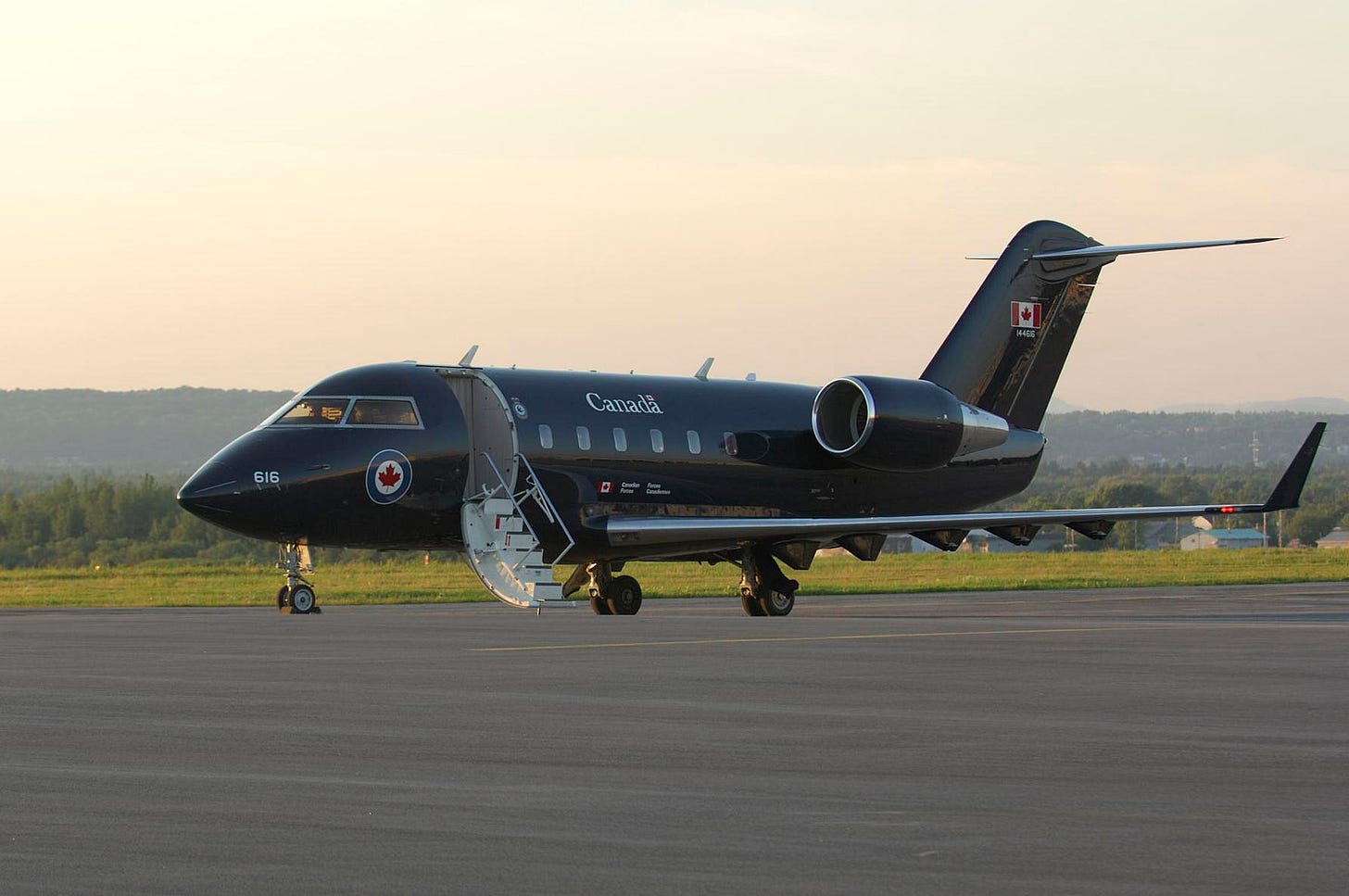
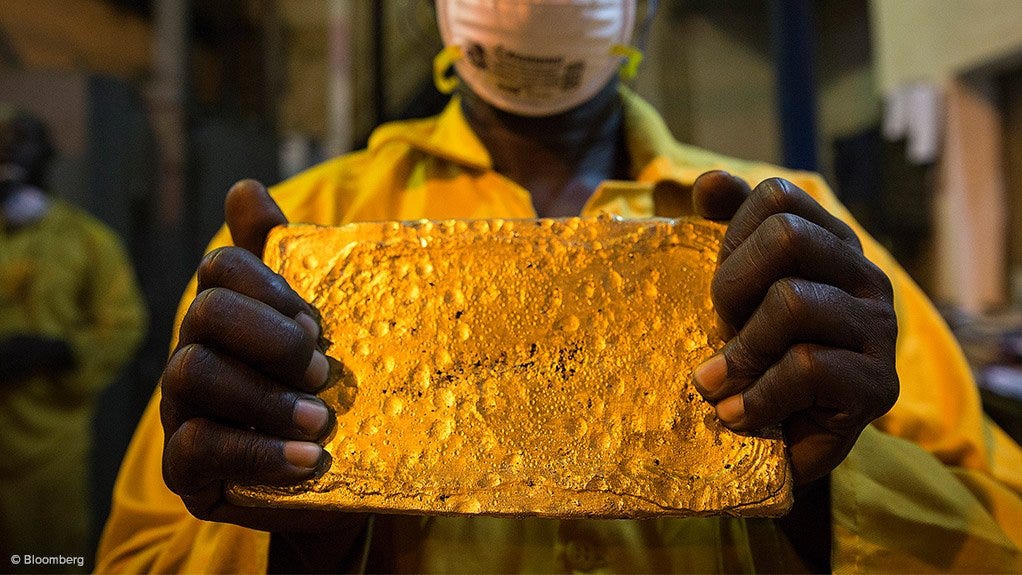
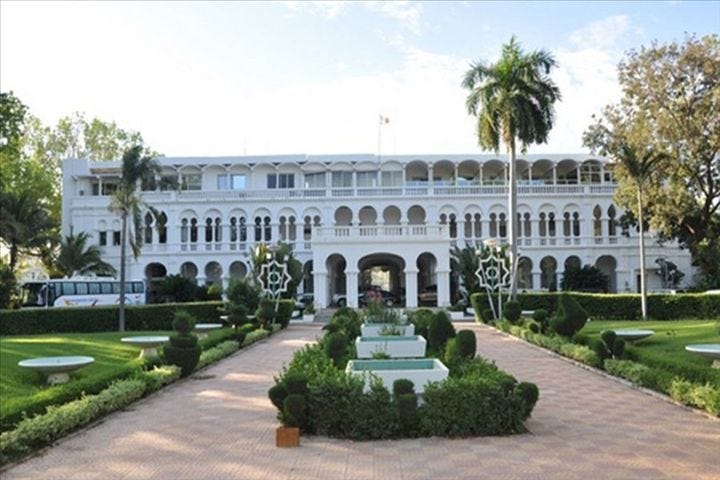
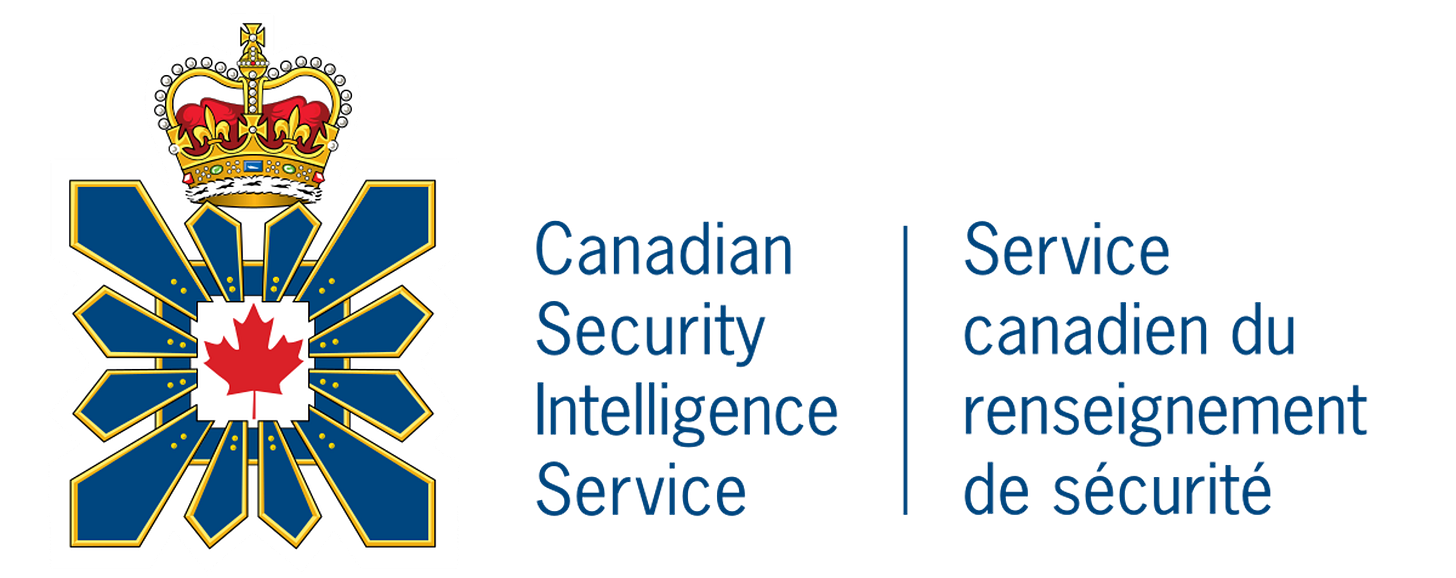
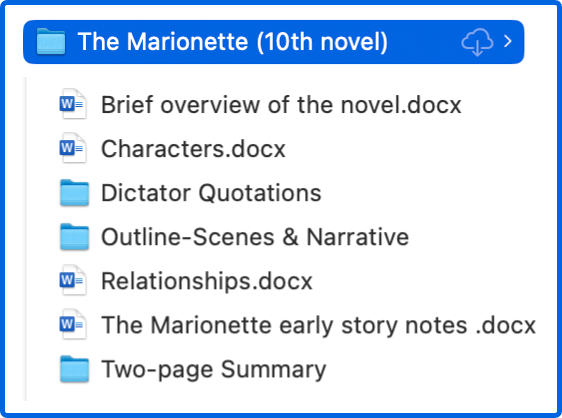
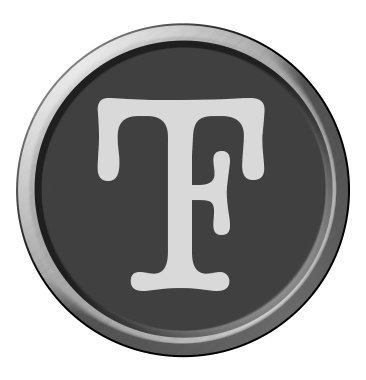
Washing out of CSIS not unusual. Their hiring process is a disaster, sometimes over a year to jump over the last security fence. Youngest son went through it and after receiving his final clearance was put into a "pool", and told to wait to be considered for a position. He bailed- now working with Cdn forces intel, and doing well.
Congrats on the progress, Terry! I love that you're always willing to step outside of what you've written before to try something new.
Still floors me to hear of authors battling self-doubt, even as they begin their 10th (10th!) novel. It's both comforting and terrifying... lol